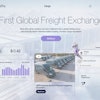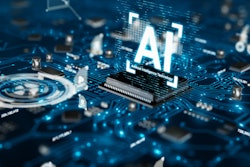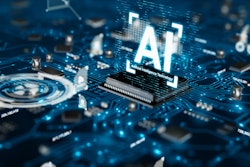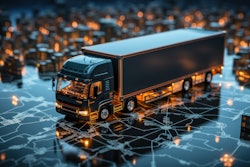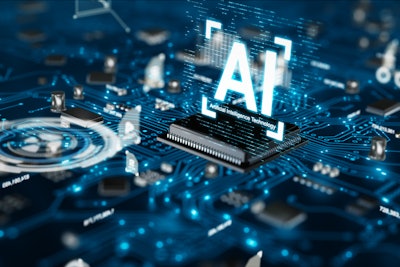
We are living in a time of remarkable technological advancement. Over the last few years, artificial intelligence (AI) has become a major force in corporate business use, becoming widespread and increasingly sophisticated in advancing efficiencies, innovation, and providing easier access to data. The transformative potential of AI is very real indeed, and as various industries import AI into their tech stack, the promised productivity lies in unstructured and unexploited data.
These changes are mostly for the best. COVID-19 demonstrated supply chain inefficiencies. The strain that the pandemic put on systems exposed vulnerabilities to disruption. The supply chain industry has low maturity when it comes to technology, with some companies still paper-based compared to other sectors. In that sense, supply chains aren’t just behind on AI, but on basic digitization. Make no mistake -- expect digitization to rapidly transform the industry.
One serious concern related to AI is job displacement and its impact on the labor market. AI’s promise is one of massive productivity. McKinsey recently estimated that current AI capabilities could automate 60-70% of the work that employees do right now. A big question looms behind this statistic. If AI can do 60% of your work for you — and, these days, often faster and better than you can — then what’s next? Some say that if AI is going to take all jobs, maybe it is a Pandora's box that should never be opened. But the premises of this argument teeter on a set of misunderstandings — not just about AI, but about labor itself — as well as the specific needs of the food and beverage logistics industry.
Setting the record straight
Students of history know that technological shifts don’t simply destroy old value— they create new value as well. People often imagine that the labor market is a fixed and immovable entity, with a finite number of jobs that do not expand or contract. Of course, it doesn’t always work that way.
Jobs evolve all the time, and most often, technology creates new jobs while phasing others out. So, while you could anticipate labor shocks to be downstream of AI, the annihilation of human labor is a specious claim. AI requires oversight, which requires humans. Complex AI systems — like those employed in a supply chain — require complex oversight, which means we need people to manage the technology. Supply chain workers can’t become AI minders, but even at its best applications, it simply makes it easier for humans to be human. This is important in many industries, to be sure. But it’s paramount in food and beverage logistics.
A matter of service
Food and beverage logistics obviously involve a lot of technical precision — getting perishables from Point A to Point B reliably takes detailed calculation and execution. The industry depends on timing – it’s critical because of shelf life. And so, this industry requires advanced usage of technology (track and trace, automation, etc.) to enable growth while managing risks.
It’s expected that AI can unlock the potential to double-down on the essential parts of business and leave the technical problems to artificial assistants. Imagine a shipment of perishable goods faces an unexpected delay, potentially compromising product quality and safety. An AI system can provide information on the delay and offer a set of solutions, but it cannot genuinely empathize with the customer's anxiety about spoiled goods. It cannot reassure the customer and build trust. This is where human intervention becomes irreplaceable.
AI can provide recommendations based on data, but it cannot navigate the complexities of human dynamics, negotiate with stakeholders, or build cohesive, motivated teams. Only people can bridge these gaps.
So, to be successful, this industry needs to judiciously embed AI into technology solutions that enhance business critical workflows while continuing to invest in customer service teams that leverage such technologies to delight customers.
Let the genie out
You can’t rebottle a genie. AI gives control over the implementation. How do we want AI to serve our industry? AI unleashes exponential increases in productivity, particularly over the hard technical aspects of food and beverage logistics.


